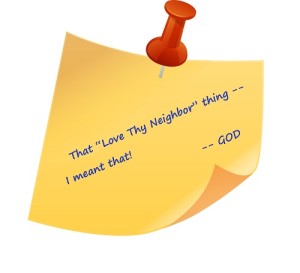 Throughout Scripture, we learn that God has a special heart for the poor, the vulnerable, the oppressed... a concern that He expects His people to share. In Leviticus, God instructs them on how they can act on this concern: a wonderfully clear, simple prescription for how His people can show intentional, compassionate generosity towards the desperately poor.
Throughout Scripture, we learn that God has a special heart for the poor, the vulnerable, the oppressed... a concern that He expects His people to share. In Leviticus, God instructs them on how they can act on this concern: a wonderfully clear, simple prescription for how His people can show intentional, compassionate generosity towards the desperately poor.
Let’s take a closer look...
The Command
This prescription is found in chapter 19, verses 9 and 10, and is repeated later on in Leviticus, and in Deuteronomy as well. This is a serious command; it goes like this: When you reap the harvest of your land, do not reap to the very edges of your field or gather the gleanings of your harvest. Do not go over your vineyard a second time or pick up the grapes that have fallen. Leave them for the poor and the alien. I am the Lord your God.
The Context
The context in which this command is first given, here in Leviticus chapter 19, is crucial to understanding its importance – and it’s relevance.
This chapter begins with the injunction Be holy because I, the Lord your God, am holy. This foundational command carries with it the idea that we are to be a people set apart, obedient to the One who has called - and graciously delivered - us. In the New Testament, Peter quotes this verse in encouraging us to turn our backs upon the self-gratification native to this world in order to live as new creations in Christ... basic discipleship.
These first 18 verses of chapter 19 go on to tell us what God expects His people’s lives in the promised land to look like. He commands them to respect their mothers and fathers, to honor the Sabbath, to not worship idols, or lie, or steal, or take his name in vain – sounds a lot like the Ten Commandments, doesn’t it?
Oh – then there’s this one, in verse 18: God commands them, and us, to (quote) love your neighbor as yourself. Did you know that? The words “love your neighbor as yourself,” the second half of Jesus’ Great Commandment, appear here in Leviticus?
Be holy, worship God not idols, keep the Sabbath, don’t lie, don’t steal, love your neighbor as yourself... And in the middle of all of this is this command to not harvest to the very edges of our fields, to leave some for the poor and alien... Given the verses that surround it, this command would indeed seem to be relevant for us, today. He wants this to be a part of the fabric of our everyday lives.
The Application
In contemporary language, the command in verses 9 and 10 might read something like this:
When you reap the harvest of your land,
(If the Lord has blessed you with an income)
do not reap to the very edges of your field
or gather the gleanings of your harvest...
(don’t spend all of it on yourself)
Leave them for the poor and the alien.
(set a little bit aside for helping the poor.)
Ok, this is making sense... what to do (leave some for the poor), how to do it (don’t harvest to the very edges)... What God is commanding here is a very intentional act, isn’t it? The modern word is budget: Budget, just a little, around the edges, so to speak, for giving to help the “least of these.”
Holiness, obedience, intentional compassion... Let’s drill just a bit deeper into this section. Amidst these basic instructions for how His people are to live, we find verse 14: do not curse the deaf, or put a stumbling block in front of the blind, but fear your God. I wonder if God, in addition to giving us His basic commands, is also setting an explicit expectation for what we might call simple human decency... Simple human decency – I mean, who would hurl verbal abuse at a deaf person, or try to trip a blind man? In this context, then, the act of not harvesting to the very edges of our fields, of intentionally budgeting to set something aside for the desperately poor, is seen as an act of simple, God-honoring human decency.
The Question
Our Father has told us, quite clearly, what He expects of us with regards to helping the desperately poor... and, how we can reasonably go about doing it...
So, here's the question: Have we, in 21st century America,
packed our budgets so full, to the very edges, that we've nothing left to share?
If you found this post meaningful, please share it with a friend!